SintraCascaisSesimbra.com
The best independent guide to Sesimbra
SintraCascaisSesimbra.com
The best independent guide to Sesimbra
Castelo de Sesimbra, Sesimbra Castle
The Moorish castle of Sesimbra stands high above the pretty fishing village and has guarded the town since its early founding.
The castle was one of the first victories for the Christian conquest of Portugal over the Moors in the 12th century and its strategic positioning was important for the defence of early Portugal.
For visitors the who make the 230m climb up to the castle will be rewarded of stunning panoramic views over Sesimbra and the surrounding coastline. Inside the castle there are extensive battlements, a pretty church but most visitors simply come for the views.
Related articles: Sesimbra introduction
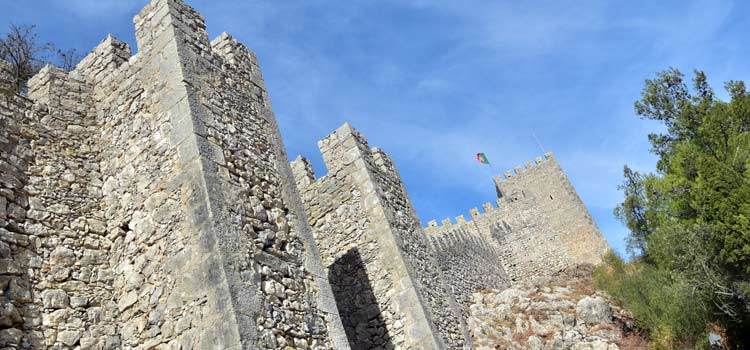
Sesimbra Castle Tourist Information
The castle is open every day from 7:00 until 20:00 (summer season) or 7:00 until 19:00 (winter season). There is no entrance fee for the castle and generally most visitors spend less than 30 minutes in the complex.
An Image Tour of the Castelo de Sesimbra
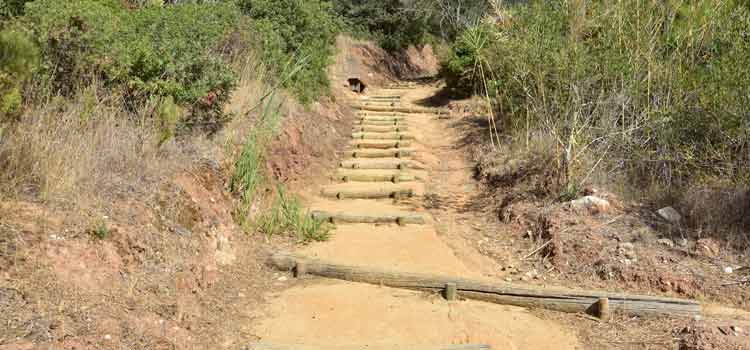
You can drive to the castle or catch a taxi (€5-8) but there is a foot path that climbs the steep hill up to the castle. The path begins at the junction of the Rua Eduardo da Cunha and the Rua do Valparaíso, GPS coordinates 38.44993, -9.10424. The path is short but it is a challenging climb, remember to take some water.
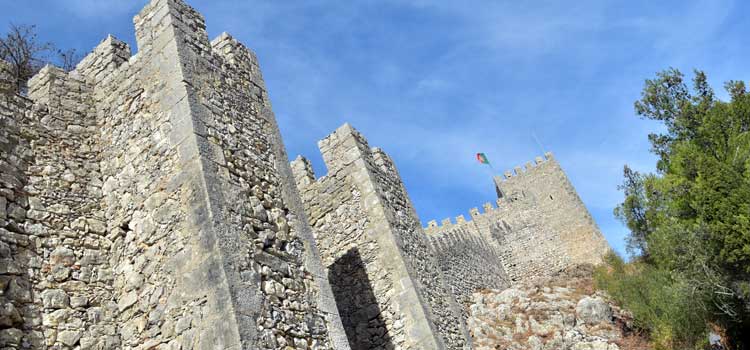
The footpath leads to the Porta do Sol, which was the main entrance for cattle and waggons. The gate is between two towers and overlooked by the main defensive tower. As with so many historic monuments of Portugal there is no entrance fee and you are free to explore at your leisure. The castle does close for the night.
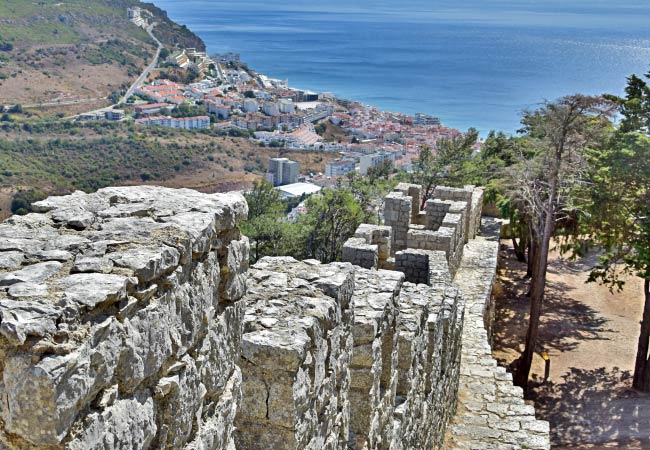
At this stage most, visitors rush to the battlement walls and climb the steps to admire the fantastic view over Sesimbra, and the view is amazing. Just be careful as there are no hand rails and there is a high drop from battlements. The above picture is from the battlements to the left of the Porta do Sol.
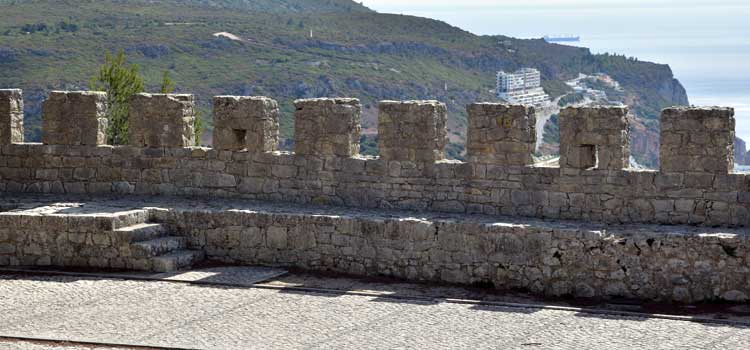
If you drove up or caught a taxi this is the view point to the western side of the castle. Along this southern wall is a cemetery and more stunning views.
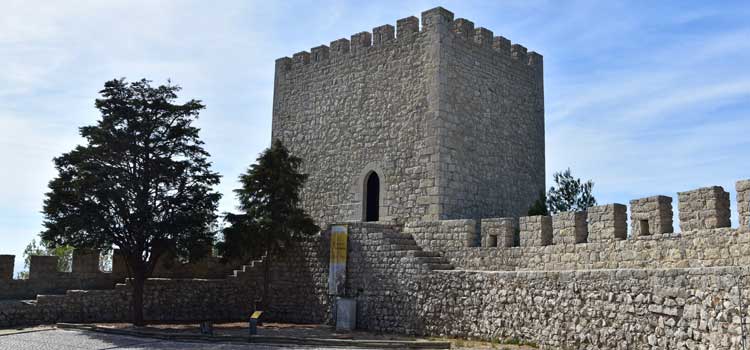
Within the western-most tower is a small museum spread over two floors. The top floor provides a history of Sesimbra and Portugal in context with global events. The lower floor details the progression of Portuguese castles and has a scale model of Sesimbra castle.
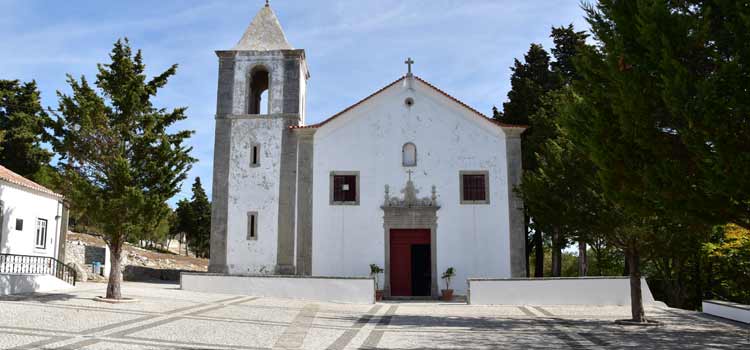
At the centre of the castle complex is the Igreja de Santa María, a rather bland Baroque church, but make sure you go inside.......
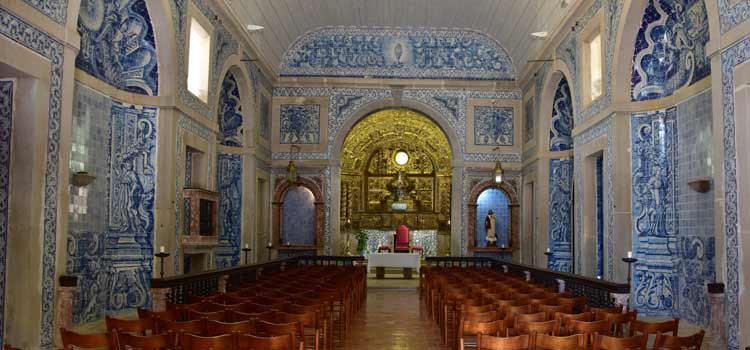
.. as the tiny church is completely adored in azulejos tiles (traditional blue glazed tiles).
Next to the church is a cafe an ideal place for a strong coffee and cake. In front of cafe are deep holes where grain used to be stored, a novel way of protecting the grain from little mousey pests.
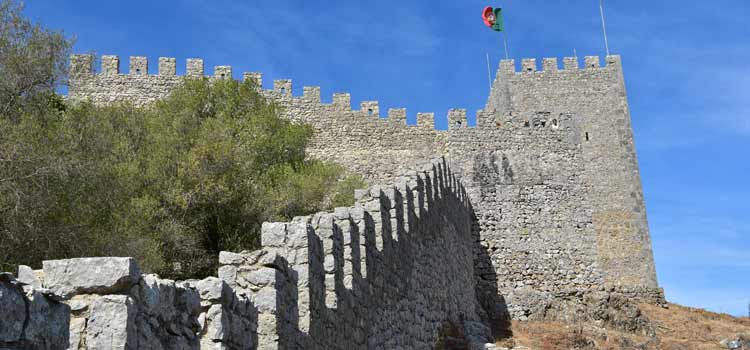
After the coffee consider climbing the highest tower of the castle which overlooked the keep. From here are the best views over Sesimbra and also the Serra da Arrabida. Afterwards it’s a return to Sesimbra
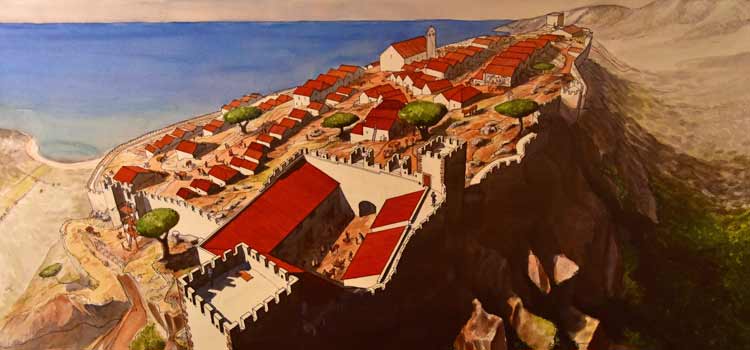
An artist’s impression of how the castle appeared during the 14th century
History of the Sesimbra Moorish Castle
The castle of Sesimbra was the last of the irregular shaped hill forts constructed by the Moors prior to the invasion by the Christians in the 12th century. The castle walls extended the perimeter of the old village and are heavily defended on the south-eastern side with turrets and a fortified keep.
This side of the castle was exposed to the beach and most likely route of attack. The sea was the direction that Afonso Henriques, with the help of Frank Crusaders, stormed and captured the castle in 1165. During the early years of Portugal the fortifications were strengthened but even with the strategic vantage point the castle never saw battle again. Much of the present day castle was repaired during a the 1930 in a drive to restore many of Portugal's national treasures.
Our most popular guides to the Sesimbra region
Expert Insight: These guides are curated by Philip Giddings, a travel writer with over 25 years of local experience in Portugal. Since 2008, Phil has focused on providing verified, on-the-ground advice for the Setubal and Sesimbra region, supported by deep cultural ties through his Portuguese family. Read the full story here.















